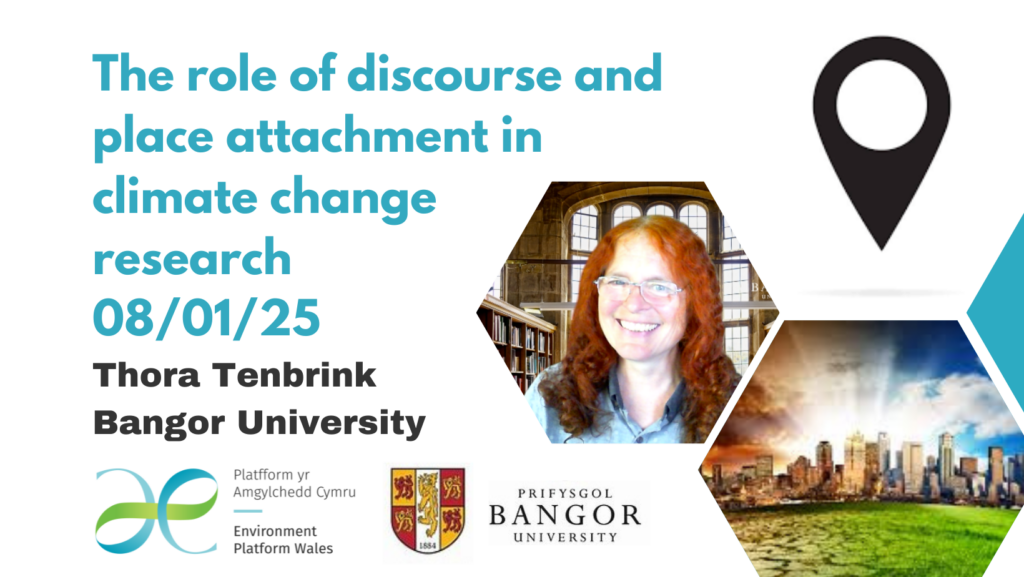
People care about their local areas, often very strongly, and this affects their reactions to change. Making changes to places, even with positive intentions, can therefore be hard without local buy-in. However, changes to places do happen continuously – and many of them damage the environment, reducing people’s place attachment and wellbeing. Places are closely connected to our identity, through language, history and sense of belonging. How can climate action honour this and build on people’s place attachment, rather than imposing environmental changes that seem to threaten what people love? In this talk, I will report on various recent and ongoing projects that address the role of discourse and place attachment in climate change research and community engagement, including the role of the Welsh language in different areas of Wales.
About the Speaker

Thora Tenbrink is Professor of Linguistics and Director of Postgraduate Studies at the College of Arts, Humanities and Social Sciences at Bangor University. Her main expertise is in discourse analysis, used to understand how people think. She is author of “Cognitive Discourse Analysis: An Introduction” (Cambridge University Press, 2020) and “Space, Time, and the Use of Language” (Mouton de Gruyter, 2007), co-editor of three books on linguistic representation and dialogue, and has published more than 40 peer-reviewed journal articles in areas of language, cognition and communication. In recent years her focus has moved from space (understanding spatial locations and relationships) to place (meaningful relationships to spaces), especially in relation to climate change. She is Director of the Places of Climate Change Research Centre at Bangor University, as well as co-leading the PATCCh WISERD network. Both groups aim at collaborating on place-based approaches to climate change.



